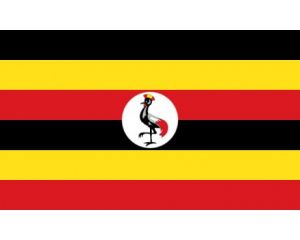Difference between revisions of "Language/Ganda/Grammar/Adjectives"
m (Quick edit) |
m (Quick edit) |
||
| Line 43: | Line 43: | ||
<hr>If you have any questions, please ask them in the comments section below.<br>Feel free to edit this wiki page if you think it can be improved. 😎 | <hr>If you have any questions, please ask them in the comments section below.<br>Feel free to edit this wiki page if you think it can be improved. 😎 | ||
==Related Lessons== | |||
* [[Language/Ganda/Grammar/Pronouns|Pronouns]] | |||
* [[Language/Ganda/Grammar/Negation|Negation]] | |||
* [[Language/Ganda/Grammar/Conditional-Mood|Conditional Mood]] | |||
* [[Language/Ganda/Grammar/Questions|Questions]] | |||
* [[Language/Ganda/Grammar/Plurals|Plurals]] | |||
{{Ganda-Page-Bottom}} | {{Ganda-Page-Bottom}} | ||
Revision as of 23:06, 25 February 2023
Hi Ganda learners! 😊
In today's lesson, we will be discussing adjectives in the Ganda language. Adjectives are words that describe or modify nouns and pronouns. They can be used to give more information about a person, place, thing, or idea. In Ganda, adjectives are usually placed before the noun they modify.
Types of Adjectives
Adjectives can be divided into two main categories: descriptive adjectives and possessive adjectives.
Descriptive Adjectives
Descriptive adjectives are used to describe the qualities of a noun or pronoun. Examples of descriptive adjectives include: big, small, tall, short, happy, sad, etc.
In Ganda, descriptive adjectives usually come before the noun they modify. For example:
- Ndabirira oba omu - The big house
- Ndabirira oba omuntu - The big person
Possessive Adjectives
Possessive adjectives are used to show ownership or possession. Examples of possessive adjectives include: my, your, his, her, its, our, their, etc.
In Ganda, possessive adjectives usually come after the noun they modify. For example:
- Oba omu yange - My house
- Oba omuntu yange - My person
Adjective Agreement
In Ganda, adjectives must agree with the noun they modify in terms of gender and number. This means that the adjective must match the gender and number of the noun it is describing.
For example:
- Ndabirira oba omu - The big house (masculine singular)
- Ndabirira oba omuntu - The big person (masculine singular)
- Ndabirira aba amu - The big houses (plural)
- Ndabirira aba abantu - The big people (plural)
Conclusion
In this lesson, we have discussed adjectives in the Ganda language. We have looked at the two main types of adjectives - descriptive adjectives and possessive adjectives - and how they are used in Ganda. We have also discussed adjective agreement and how adjectives must agree with the noun they modify in terms of gender and number.
If you have any questions, please ask them in the comments section below.
Feel free to edit this wiki page if you think it can be improved. 😎
